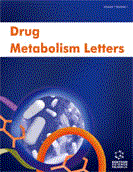Abstract
Caffeine is the active constituent in coffee. Continual consumption of caffeine can lead to an attenuated response also known as tolerance. Results from rat studies have shown that caffeine is an inducer of CYP1A2, the enzyme responsible for caffeine’s metabolism. This suggests that CYP1A2 induction by caffeine may be in part responsible for caffeine tolerance. However, whether caffeine induces CYP1A2 expression in humans remains unknown. Our results from luciferase assays performed in HepG2 cells showed that caffeine is not an activator of the aromatic hydrocarbon receptor (AhR), a major transcription factor involved in upregulation of CYP1A2. Furthermore, caffeine did not induce CYP1A2 expression in primary human hepatocytes at a concentration attained by ordinary coffee drinking. On the other hand, caffeine enhanced CYP1A2 expression by 9-fold in rat hepatocytes. Our results suggest that caffeine from ordinary coffee drinking does not induce CYP1A2 expression in humans and that factors other than CYP1A2 induction by caffeine likely contribute to development of caffeine tolerance in humans.
Keywords: Caffeine, tolerance, pharmacokinetics, AhR, CYP1A2, regulation
 9
9










